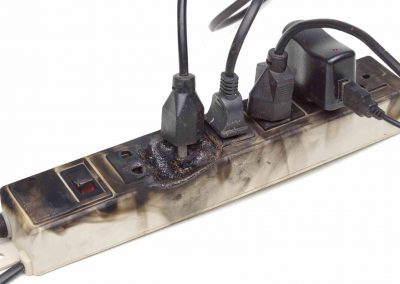Power-Saving Tips For Homes
There are numerous tips on home energy conservation, from small daily habits to big investments that help the environment and reduce your energy bills.
So what are some simple tips to reduce energy consumption at home?
If you can avoid turning your lights on and off constantly, it will help save energy. Try to use a timer or sensor to turn lights off when they are not being used.
If you have air conditioners, ensure they are running at the correct temperatures and only turn them on during periods of high demand.
Close blinds and curtains daily to reduce sunlight exposure and save energy.
Install motion-detector light switches that turn lights off when no one is in the room. This will help save energy in areas such as hallways and stairwells.
Install a programmable thermostat to lower your energy bills when temperatures are low, or you are not using the home.
How To Reduce Your Energy Consumption?
There are many ways to reduce your energy consumption, and it is important to do your part in conserving resources. Here are some tips to help you save energy:
1. Turn off unnecessary lights when you leave a room. This includes lamps, computer screens, and appliances.
2. Close curtains and blinds during daylight hours to reduce sunlight exposure. This can help save energy by reducing the need for air conditioning or heating.
3. Insulate your home’s walls and ceilings to conserve the heat inside during cold weather months. This can help you avoid using electric heaters or the stove in the wintertime.
4. Use power strips and circuit breakers to minimize the number of plugs needed in a room. This will help free up outlets for other devices, such as televisions or stereos.
5. Use less water when brushing your teeth or washing dishes. Running water unnecessarily can use up a lot of energy.
6. Check air filters on furnaces, air conditioners, and other appliances regularly to ensure they are not clogged with dust or debris. Cleaning them can reduce the amount of work they need to perform and save energy in the long run.
Don’t Peek In The Oven
If you love to peek in the oven to see what’s cooking, like many of your neighbors, you may be guilty of wasting energy and money by peeking in the oven instead of using the stove. Here are some tips to help you save energy and money by avoiding peek-a-boo:
1. Preheat your oven before you start cooking. This will save energy because your oven will work more efficiently.
2. Cook without looking. This may seem not easy, but try not to peek while your food is cooking. If you have to look, keep your eyes shut while doing so, and don’t open them until the food is done.
3. Use a timer. This is another way to avoid looking in the oven and wasting energy. Set a timer for a certain time, and don’t look until that time has elapsed. This way, you won’t have to waste energy guessing how long it will take for your food to cook.
4. Turn off the oven when you’re not using it. This can be tricky, but turning off your oven when you’re not using it will save energy because your oven will not constantly run.
5. Cook food in bulk. Cooking food in bulk can save you a lot of money because it will cost less per serving. This is especially true if you cook meals on the weekends and have leftovers.
During Warmer Months, Close Blinds, Shades, And Drapes
To save energy, it is important to close curtains, blinds, and shades when the temperature outside is above 70 degrees Fahrenheit. This will help to reduce the amount of energy that needs to be used to keep a room cool.
Clean Or Replace All Filters In Your Home Regularly
Regularly cleaning or replacing all of your home’s filters can help to save you both energy and money. Dirty air filters can cause a home’s furnace to work harder to heat the house while also costing you utility bills. Replacing all filters regularly also helps reduce the number of allergens and other pollutants that reach your family’s lungs.
Switch To LED Light Bulbs
Switching to LED light bulbs can help you save power and money. LED light bulbs last up to 50,000 hours, four years or more than a standard bulb. They also produce less heat and are less likely to cause fires.
Switch Off Standby
Like most people, you probably turn your appliances and electronics off when you’re not using them. But some ways to save even more power are by switching them off when they’re not in use. Here are a few tips:
-Plug your appliances into an outlet that is easily accessible and close to where you will be using them.
-Unplug unused items from your surge protector or unplug them when you’re not using them, so they don’t take up power when they’re not in use.
-Make sure all of your electronics have a power cord long enough to reach where they will be used.
-Clean up after yourself – turn off lights and appliances when you leave the room, and wait at least five minutes before turning on lights and appliances again to give the power circuit a chance to reset.
Draught-proof Windows And Doors
If you’re looking to save energy in your home, draught-proofing your windows and doors is a great way to start. According to the Environmental Protection Agency, draught-proofing can help reduce your home’s energy bill by up to 20%. Here are some tips for draught-proofing your windows and doors:
1. Check the seals around your windows and doors. If they’re old or cracked, replace them with new, weather-resistant seals.
2. Ensure your windows and doors are properly sealed against the wind and rain. This means installing weather stripping around the frame, the top and bottom of the door, and the base of your window.
3. Insulate your door hinges from the cold outside air by filling any gaps inside the door with insulation or foam rubber.
4. Install solar shades on all your exterior doors during the day to block out sunlight and heat while you’re away at work or school.
Turn Off Lights
When you’re not using a light, please turn it off by clicking the switch on the wall or turning off the power to the light. This will save energy and money.
Avoid The Tumble Dryer
Tumble dryers use a lot of electricity and can be a big power drain. Follow these tips to save energy and save money:
1. Don’t overload the dryer. The more clothes it is drying, the more power it will use.
2. Dry small loads first. Clothes take up more space in the dryer and use more energy than smaller items.
3. Use the “air dry” setting instead of the “heat dry” setting when possible. Air drying uses less energy than heat drying and is less likely to cause your clothes to shrink or become misshapen.
4. Turn off the dryer when it’s not in use. Not only will you save energy, but you’ll also prevent unnecessary wear on your appliance
Spend Less Time In The Shower
Showering can take up a lot of time, but there are ways to save time in the shower. For example, use cold water instead of hot water and a shower head that saves water. Also, try using body wash and shampoo made with less soap.
Top Up The Insulation
For many homeowners, one of the most overlooked ways to save energy is by upgrading insulation in their homes. Insulation can help reduce energy costs by reducing the heat lost through the walls and ceilings. In addition, installing new insulation can also reduce noise levels in the home, conserve water resources, and improve overall comfort.
Fill Your Dishwasher
Fill your dishwasher only as full as it will go. This will help save power and water.
Select the correct cycle for your dishes. Choose a short or gentle cycle if possible, as this will use less water. Avoid using the hot water tap to fill the dishwasher; use the dishwashing machine’s cold water tap instead.



